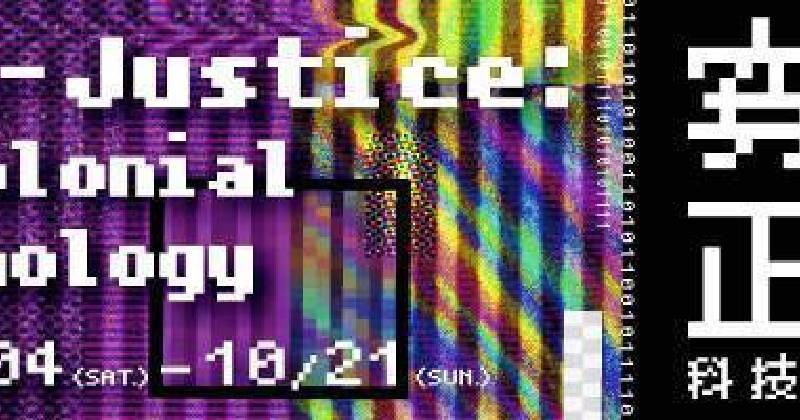台北當代藝術館
【穿越─正義科技@潛殖】Trans-Justice: Para-Colonial@Technology

-
展期
日期:2018-08-04 ~ 2018-10-21
-
地點
台北市大同區103長安西路39號
-
參展藝術家
卡戴.阿提亞Kader Attia、白雙全Pak Sheung Chuen、吳其育Wu Chi-Yu、咸良娥Ham Yang Ah、哈倫.法洛奇Harun Farocki、致穎Musquiqui Chihying &格雷戈爾.卡斯帕Gregor Kasper、徐坦Xu Tan、張紋瑄Chang Wen-Hsuan、陳界仁Chen Chieh-Jen、黃以曦Estella Huang、黃邦銓Huang Pang-Chuan、黃漢明Ming Wong、蘇育賢Su Yu-Hsien
-
策展人:黃建宏
2017年是臺灣宣告解嚴的三十週年,然而當時那個解放時刻並非臺灣獨有,就地緣政治而言,無論是原屬自由主義陣營或是共產主義陣營的國家,都進行著民主化運動,另一方面就歷史縱深而言,以2017-2019三年來回溯,也是十月革命一百年、六八學運五十年、推倒柏林圍牆三十年;然而,八○年代後期大量的「轉型正義」,似乎在二十多年後並沒能保障社會正義,意即社會價值的共享、平等與權力資源的公平分配都沒能獲得解決,以至於在這十幾年間出現大量「準無政府主義」的佔領運動。簡言之,全球的民主化與自由化牽動了所有社會中權力與貧富差距的懸殊。
這些層層包覆的懸殊差異,在全球結構和個人關係之間存在著不可見的明確關聯,可是怎麼面對這地理和歷史上都極為複雜的巨大跨度,似乎造成今天中間世代的尷尬處境以及年輕世代的困境,甚至社會創造力的大量開發與耗損。無疑地,今天大多將未來改變的可能投注到科技的創造力,然而,數位網路科技的發展與這發展牽動的生產關係,也同時帶給人們極大的不安,意即對人的「取代」。對此,藝術的創造力,特別是建立個人與世界之間新關係的想像,也就是「生態式個體」(eco-individual)的保存,將會是下一階段民主與科技發展中的核心需求。「穿越─正義:科技@潛殖」展覽就是為能藉由藝術家的相關創作來開啟我們對於穿越困境的想像,以及對於「正義經驗」的思考。
因此,從展覽中的藝術計畫來看,「未來正義的所在」必然不在過去或現有「正義/不正義」的二元框架內,而是作為框架外、又並非烏托邦的「另類選項」。在八○年代的全球民主化三十年後,我們可以更清晰地理解到「科技@潛殖」不是歷史中特定殖民主義或後殖民處境的延伸,不像先前特定歷史階段中可清楚區分出殖民者與被殖民者的狀況,而是指在今天社會關係的民主化與訊息的高速流通傳輸下,仍然保存了舊的支配關係,其中隨著全球化流動而不斷變動的只是佔據支配位置的角色。毫無疑問地關注個體與結構、經驗與宇宙論的關係,並以創造性的方式想像各種個體或社群得以實踐的方法,這正是藝術家們從未在晚近幾個世紀停止過的工作:朝向「穿越」。
Trans-Justice: Para-Colonial@Technology
Curator: Huang Chien-Hung
The year 2017 marks the 30th anniversary of the lifting of martial law in Taiwan, with that moment of liberation in history belonging, nonetheless, not only to Taiwan. Geopolitically, other nations, whether originally on the side of liberalism or communism, were also in the midst of democratization, and historically, the three years between 2017 and 2019, also mark the centennial of the October Revolution, the semi-centennial of the May 1968 in France, and the 30th anniversary of the fall of Berlin Wall. However, the abundance of “transitional justice” in the late 80s has not led to the guarantee of social justice two decades later; in other words, communal social values, equality, fair distribution of power resources have all remain unresolved, resulting in the heavy influx of “quasi-anarchism” occupy movements. In short, global democratization and liberalization have caused power disparity and a gap between rich and poor in society
Under the layers of disparaging differences, there exists an invisible yet apparent connection between global structure and personal relations; however, how to confront this extremely complex and colossal geological and historical stretch seems to have caused an awkward state for the middle-aged generation and imposed some conundrums for the youth generation, even leading to tremendous expansion and exhaustion of social innovativeness. Undoubtedly, much attention on the possibilities of altering the future is placed on technology’s inventiveness; however, the development of digital network technology and the relations of production evoked by such development are also inflicting much anxiety in people due to suggestion that human could be “replaced”. With this in mind, artistic creativity, especially imaginations on forming new relationships between individuals and the world, or the preservation of the “eco-individual”, will be the core demand for the next phase of democracy and technological development. The objective of this exhibition, Trans-Justice: Para-Colonial@Technology, seeks to find artworks relevant to the theme to open up our imagination for transcending obstacles and our thoughts for “justice experience”.
Seeing from the artworks on view in the exhibition, the position of future justice certainly does not exist in the binary framework of “justice/injustice” that is often seen in the past or even the present, but it exists outside the framework and does not present itself as a utopian “alternative option”. Three decades after global democratization took place in the 80s, we can more clearly comprehend that Para-Colonial@Technology is not an extension of specific historical colonialism or post-colonial state; it is not a state of affair with the colonizer and the colonized clearly distinguishable like previous specific historical periods in time. The old dominance relationship remains, but the one occupying the dominant position is constantly changing under the flow of globalization. The relationships between individuals and structure, experience and cosmology are indisputably focused on, with innovative ways applied to imagine various methods of practice for individuals or groups. This is exactly the task that artists in recent centuries have never ceased pursuing, which is striving to “TRANS”.
